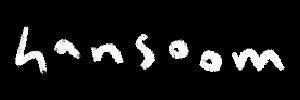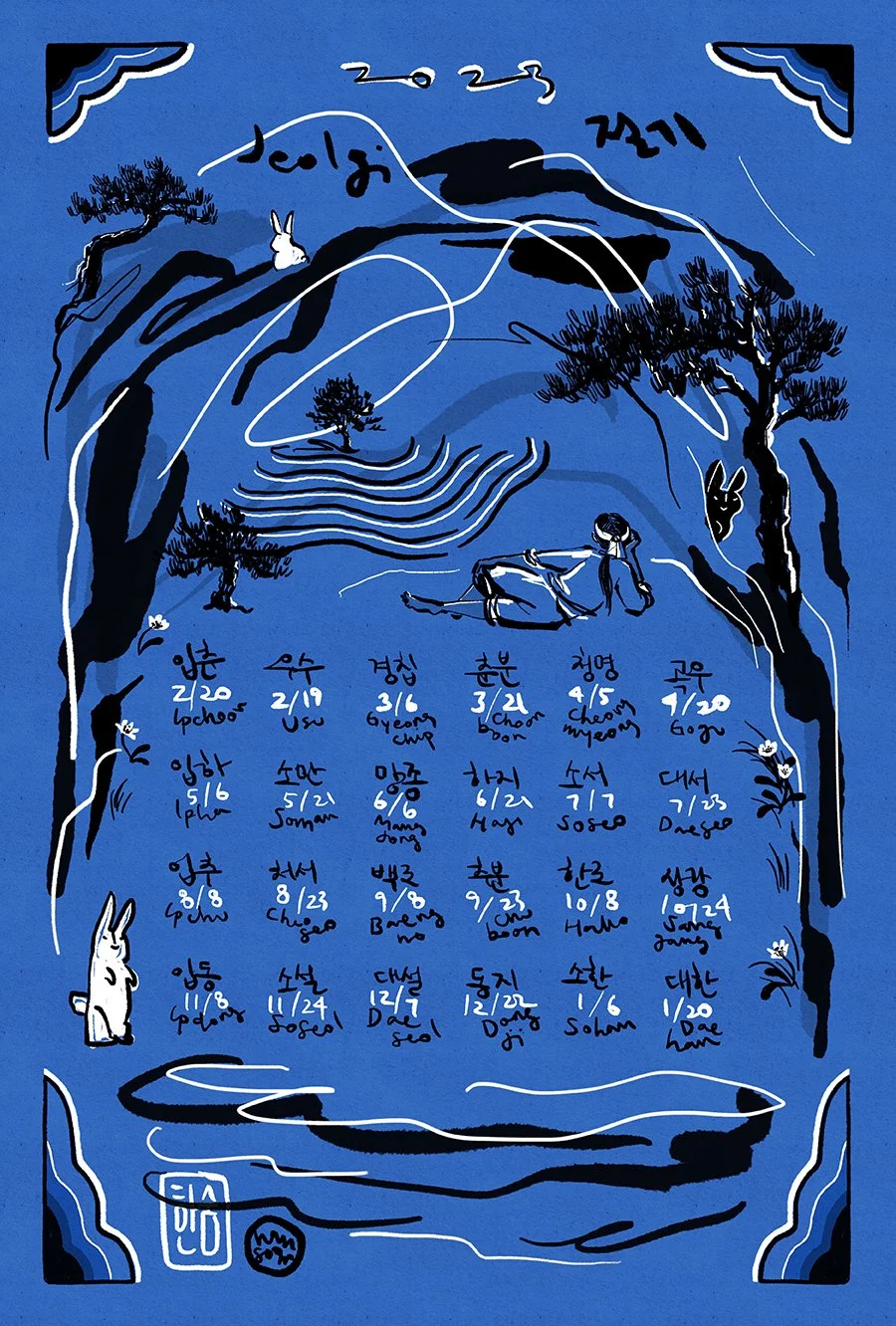About the Jeolgi
Koreans have always been deeply rooted in the earth, with a spiritual connection to place, plants, animals, and land, and in deep relation to the cycles that sustain us. Agriculture has long been the basis of Korean culture and economy, despite the ways in which capitalism and global intervention have sought to erase our connection to land. The 절기 / Jeolgi is a seasonal timetable based on the natural cycles of sun, clouds, rain, and snow, that hold importance for Korean farming practices. It is a result of centuries of folk knowledge passed down through the generations and immortalized into tradition. Jeolgi divides the year into 24 seasons — 6 seasons within each of the 4 we are accustomed to today. Each of the 24 seasons lasts for approximately 15 days, and has its own significance related to weather and farming.
For each year since 2021, Hansoom has produced a Jeolgi poster and a journal. Though the Hansoom Jeolgi was written with care and love as to be accessible to all Koreans, we would like to acknowledge that our research into the seasonal significances, holidays, and traditions were based on access to southern Korean resources, understandings, retellings, and contemporary practices. Nonetheless, even today many of the seasons and holidays in the Jeolgi are recognized in both the north and the south. Additionally, we are rooted in the knowledge that wisdom about agriculture and land stewardship is always linked to indigenous sovereignty. Across time and space, land tenders have paid attention to and connected spiritually to the eternal truths of the sun, moon, clouds, and stars. We hope that the Hansoom Jeolgi can remind you of what unites us as one Korean people, while also expanding the possibilities for a Koreanness that exists beyond borders and that is connected to all colonized, displaced, and oppressed people around the world.





